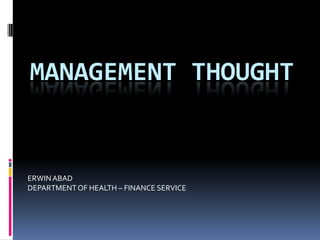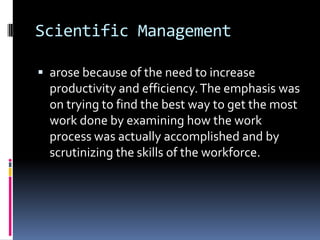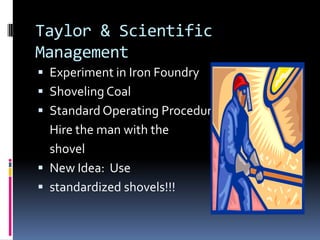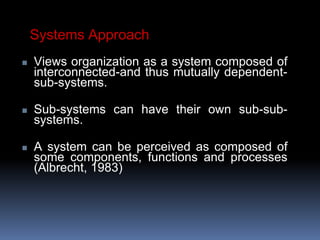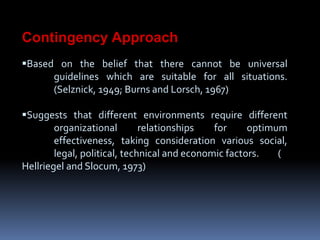This document summarizes the major schools of management thought including classical, behavioral, and modern. The classical school focused on scientific management, bureaucracy, and administrative principles. Scientific management aimed to maximize efficiency through matching tasks to workers. Bureaucracy structured organizations hierarchically. Administrative management identified general management principles. The behavioral school emphasized the human element and how relationships impact productivity. The modern school integrates multiple theories and recognizes there is no universal approach, favoring contingency based on situational factors. Systems and contingency theories view organizations holistically and advocate different structures depending on the environment.
